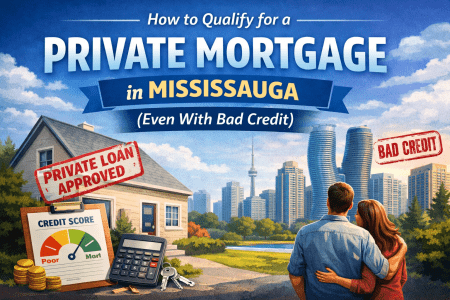Getting a mortgage is a huge time in a person’s life, but it’s never straight forward or easy. Securing a mortgage can take a lot of time and effort. It can also mean a lot of rejected attempts before you actually get accepted. This guide will help you to at least triple your chances of getting a mortgage, so you can be confident when you apply:
Your credit score plays a big part in getting a mortgage. If your score looks a little low, then there are a few things you can do to improve it. First of all, I suggest you make sure that there are no mistakes on your record. If there are mistakes on there, you need to sort them out ASAP so your record can be a true image of how you handle your finances. Mistakes do happen, so make sure you sort these out. You can then concentrate on other things that could be affecting your score, like outstanding debts.
Pay Off Any Outstanding Debts
As previously mentioned, outstanding debts can affect your credit score and won’t give a very reliable image of you to lenders. A person in debt isn’t likely to handle their finances well enough to pay off their mortgage each month, in their eyes. Before you start saving any money for your mortgage, pay off your outstanding debts and get back in the green.
Always Pay Your Bills On Time
By always paying your bills on time, you show the mortgage lender that you can handle your money well and will always pay your mortgage on time. One missed payment can make a big difference to an otherwise spotless record, so make sure you know when your bills are due to come out and that you have enough money behind you to pay them.
Close Any Bank Accounts You Don’t Use
Bank accounts you don’t use may seem harmless, but they can affect your credit score too! If there are any bank accounts that you don’t use at all or you could do without, make sure you close them ASAP. Don’t simply throw away the cards though; call the bank or go in and close them, or it won’t be official.
Avoid Living on the Edge of Credit
If you have credit and pay it off, that’s all well and good. However, if you are always on the edge of your credit, it will look to lenders as if you aren’t in control of your finances and are living beyond your means. Try to avoid going into your credit too much, even if you always pay it off on time.
Disassociate Yourself from People Who Bring You Down
You might not know it, but if you’ve ever shared a bank account with a person who has bad credit or doesn’t handle their finances well, they can bring you down too. You need to call the bank and ask them to disassociate you from these people; whether it was an ex partner or a friend you once shared a flat with.
Try the above tips, and you’ll stand a much better chance of securing that mortgage!
Great Tips to Get a Bad Credit Mortgage Loan
Buying a home is one of the expensive investments that people ever make. Purchasing a home typically involves approval of a mortgage loan which can cost thousands of dollars in interest over the life of the loan. If you are suffering from bad credit and want to get a mortgage loan, you have to take in to account several things before submitting a mortgage application. Your mortgage lender will ask you about your credit profile and it might be difficult to convince a lender to approve you for a mortgage loan. However, certain tips may help you secure a bad credit mortgage loan.
#1 Consider FICO Credit System
If you are interested in getting a bad credit mortgage loan, it is advised to take into account the FICO credit scoring system. FICO stands for Fair ISAAC & Company that determines how mortgage lenders will view your creditworthiness. Mortgage lenders usually opt for FICO when they evaluate the loan application of the borrower and can easily know about your credit record with the help of FICO. There will be more chances to get a home mortgage loan if your credit record is high. In case, your FICO score is below 500, there will be chances of rejection of your loan application.
#2 Carefully Review Your Credit Report
Another great tip for obtaining a bad credit mortgage home loan is to thoroughly analyze your credit report for inaccuracies. Because FICO usually approve mortgage loans on the basis of credit report of the borrower. If an error is found in a credit report, immediately send a letter to the reporting bureau requesting an investigation. If the credit bureau determines that an item was incorrectly reported, it will remove the item, which may raise your chances to repair your credit score if it is not in very good condition.
#3 Improve Your Credit Rating
You can improve your credit score by saving money for a down payment on a mortgage. It is recommended to clear the dues of previous loan first. Since, mortgage lenders commonly prefer customers with high credit scores for little or no money down, getting a bad-credit mortgage may require a down payment of up to 20 percent of the purchase price.
#4 Search Online for Mortgage Lenders
Contact mortgage lender that provide bad credit mortgage loans in your area. There are lots of online mortgage lenders that offer loans to people with poor credit profile. However, it is advised to check with the Better Business Bureau before committing to a mortgage loan with an online mortgage lender. It will ensure that the company is trustworthy and treats its customers fairly.
#5 Co-Sign Your Mortgage Loan
Even with a down payment and good income, some traditional mortgage lenders may require a co-signer to guarantee the mortgage. So, credit challenged customers are advised to co-sign their mortgage loan with a person with high credit score preferably 700 or more. Traditional mortgage lenders approve co-signed loans because it gives the lender added protection against losses if you don’t make your payments.
To conclude, following the above mentioned guidelines will help you qualify for a bad credit mortgage loan.








